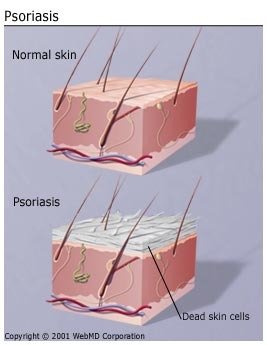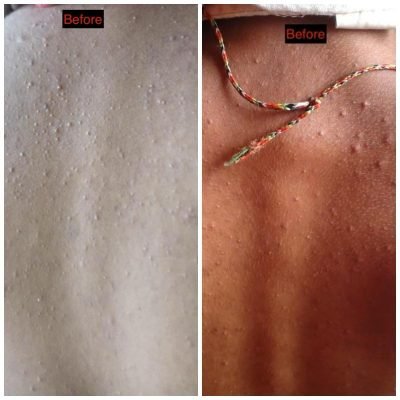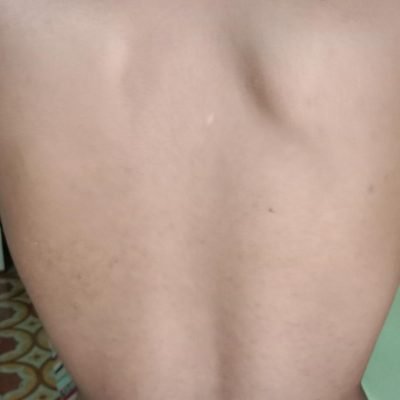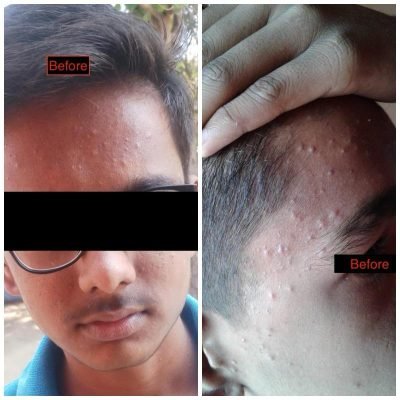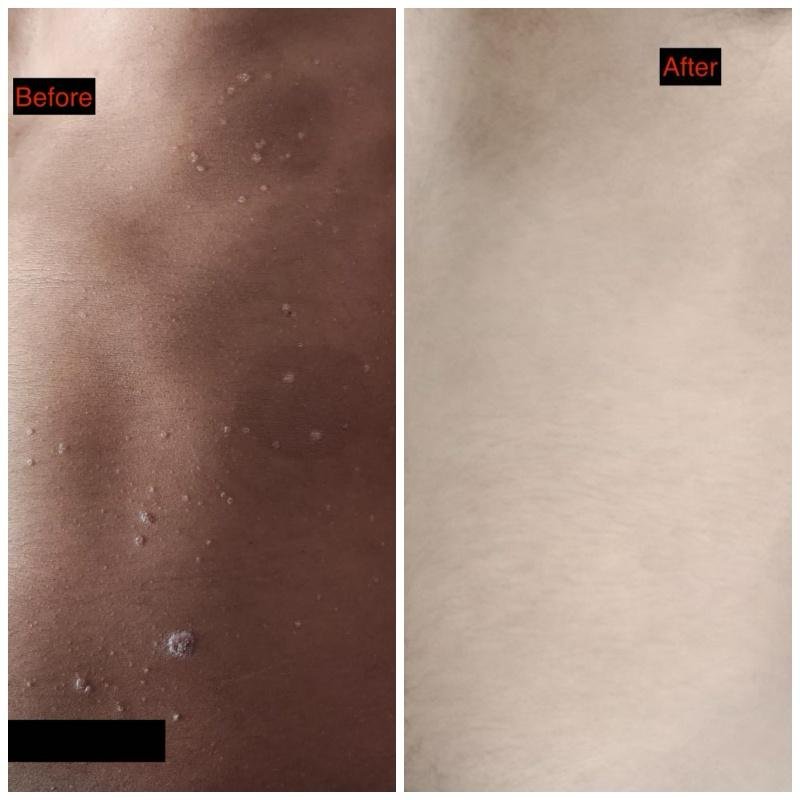What Is Psoriasis?
Psoriasis is a skin disorder that causes skin cells to multiply up to 10 times faster than normal. This makes the skin build up into bumpy red patches covered with white scales. They can grow anywhere, but most appear on the scalp, elbows, knees, and lower back.
Psoriasis usually appears in early adulthood. For most people, it affects just a few areas. In severe cases, psoriasis can cover large parts of the body. The patches can heal and then come back throughout a person’s life.
Psoriasis can’t be passed from person to person. However, it does sometimes happen in members of the same family
How do I know if I have psoriasis? Visit a doctor if you have the following symptoms –
The symptoms of psoriasis vary depending on the type you have. Some common symptoms include:
- Plaques of red skin, often covered with silver-colored scales. These plaques may be itchy and painful, and they sometimes crack and bleed. In severe cases, the plaques will grow and merge, covering large areas.
- Disorders of the fingernails and toenails, including discoloration and pitting of the nails. The nails may also crumble or detach from the nail bed.
- Plaques of scales or crust on the scalp.
- People with psoriasis can also get a type of arthritis called psoriatic arthritis. It causes pain and swelling in the joints. The National Psoriasis Foundation estimates that between 10% to 30% of people with psoriasis also have psoriatic arthritis.
Types
Other types of psoriasis include:
- Pustular psoriasis, which causes red and scaly skin with tiny pustules on the palms of the hands and soles of the feet
- Guttate psoriasis, which often starts in childhood or young adulthood,causes small, red spots, mainly on the torso and limbs. Triggers may be respiratory infections, streptococcal throat infection, tonsillitis, stress, injury to the skin, and taking antimalarial and beta-blocker medications.
- Inverse psoriasis, which makes bright red, shiny lesions that appear in skin folds, such as the armpits, groin, and under the breasts.
- Erythrodermic psoriasis, which causes fiery redness of the skin and shedding of scales in sheets. It’s triggered by severe sunburn, infections, certain medications, and stopping some kinds of psoriasis treatment. It needs to be treated immediately because it can lead to severe illness.
What Causes Psoriasis?
No one knows the exact cause of psoriasis, but experts believe that it’s a combination of things. Something wrong with the immune system causes inflammation, triggering new skin cells to form too quickly. Normally, skin cells are replaced every 10 to 30 days. With psoriasis, new cells grow every 3 to 4 days. The buildup of old cells being replaced by new ones creates those silver scales.
Things that can trigger an outbreak of psoriasis include:
- Cuts, scrapes, or surgery
- Emotional stress
- Streptoccocal infections
- Medications, including blood pressure medications, anti-malarial drugs, lithium and other mood stabilizers, antibiotics, and NSAIDs
Diagnosis
Physical exam. It’s usually easy for your doctor to diagnose psoriasis, especially if you have plaques on areas such as your:
- Scalp
- Ears
- Elbows
- Knees
- Belly button
- Nails
Your doctor will give you a full physical exam and ask if people in your family have psoriasis.
Lab tests. The doctor might do a biopsy — remove a small piece of skin and test it to make sure you don’t have a skin infection. There’s no other test to confirm or rule out psoriasis.
Treatment
Conventional treatments include:
- Steroid creams
- Moisturizers for dry skin
- Coal tar (a common treatment for scalp psoriasis available in lotions, creams, foams, shampoos, and bath solutions)
- Vitamin D-based cream or ointment
- Retinoid creams
Treatments for moderate to severe psoriasis include:
- Light therapy.
- Methotrexate.
- Retinoids.
- Cyclosporine.
- Biologic treatments.
- An enzyme inhibitor.
- An aryl hydrocarbon receptor (AHR) agonist.
Is There a Cure?
According to old-school thought process, there’s no cure. And there’s only so much you can do… However, Homeopathy offers excellent results often with complete cure.
Homoeopathic approach
After a detailed case taking session, a remedy best suiting the individual is given. (To understand the Homoeopathic individualistic
and holistic approach, read – )
This remedy helps to –
- Reduce stress and the effects of other triggers and consequently check the inflammatory process
- Reduce pain in joints (if present) or prevent psoriatic arthritis
- Decrease the intensity and frequency of the outbreaks
- Normalize skin cell turnover
- Improve texture and reduce pigmentation of skin
Recent studies have suggested that when you have better control on the inflammatory process of psoriasis, your risk of heart disease, stroke, metabolic syndrome, and other diseases associated with inflammation also goes down.

